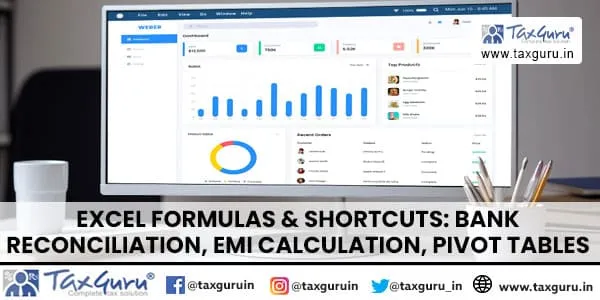Case Law Details
RELEVANT PARAGRAPH
10. I have given my careful consideration to the rival contentions. The first issue, in my view, to be addressed in this case is as to the determination of annual letting value of the house property in accordance with the provisions of section 23(1)(a) of the Act. Once that issue is decided, then it will be easy to decide the second issue as to whether the earlier order of the Tribunal in assessee’s own case was necessarily to be followed or not.
11. Since the controversy revolves around section 23 of the Act, I reproduce the same as under: –
“Annual value how determined.
23.(1) For the purposes of section 22, the annual value of any property shall be deemed to be –
(a) the sum for which the property might reasonably be expected to let from year to year; or
(b) where the property or any part of the property is let and the actual rent received or receivable by the owner in respect thereof is in excess of the sum referred to in clause (a), the amount so received or
receivable; or
It is evident from the plain reading of section 23 of the Act; that the annual letting value of the house property is first to be determined on notional basis as the amount at which the property might be expected to be let from year to year. It is settled law that where the property is subjected to Rent Control Act, the fair market rent should not exceed the standard rent. This position is well settled and reference can usefully be made to the decisions of the Hon’ble Supreme Court in reference to Shiela Kaushish (supra) and Amolak Ram Khosla (supra). Reference may also be made to the decision of the Hon’ble Supreme Court in the case of Motichand Hirachand, AIR 1968 SC 441. In this case their Lordships of the Hon’ble Supreme Court held that in certain circumstances extraneous circumstances may deflate the fair rent. Hon’ble Supreme Court has laid down the following principle of law: –
“It is well recognized principle in rating that both gross value and the net annual value are estimated by reference to the rent at which the property might reasonably be expected to let from year to year. Van’ous methods of valuation are applied in order to arrive at such hypothetical rent, for instance, by reference to the actual rent paid for the property or for others comparable to it or where there are no rents by reference to the assessments of comparable properties or to the profits earned from the property or to the cost of construction” .
12. The Hon’ble Bombay High Court in the case of J K Investors (Bombay) Ltd. (supra) has also laid down the following principles of law: –
“At the cost of repetition, it may be mentioned that under section 23(1)(a), the Assessing Officer has to decide the fair rent of the property. While deciding the fair rent, various factors could be taken into account In such cases various methods like the contractors’ method could be taken into account. Reference may also be usefully made to the decision of the Bombay Bench of the Tribunal in the case of J K Investors (Bombay) Ltd. vs. DCIT (2000) 74 ITD 274 (Bom). The Tribunal has made the following observation: –
“Since the amount of deposit was refundable, it was nobody’s case that the security deposit as such was to be treated as rent received or receivable. It could not be denied that the assessee was in a position to derive an advantage by getting the deposit That might be an important consideration while determining the notional value under section 23(1)(a)”.
This decision of the Bombay Bench of the Tribunal was upheld by the Hon’ble Bombay High Court in (2001) 248 ITR 723 (Bom). So however, the issue as to whether the notional interest can be taken into account in determination of the fair rental value under section 23(1 )(a), was left open by the Hon’ble High Court. Since the Bombay High Court has not reversed or adversely commented upon the observation of the Bombay Bench of the Tribunal in the case of J K Investors (Bombay) Ltd. (supra), the view expressed by the Tribunal would be relevant for consideration in determining the fair rental value of the property which is not subject to Rent Control Act.
13. It may be relevant to reiterate that the learned counsel for the assessee has fairly conceded before me that the property in question was not subject to Rent Control Act in the relevant assessment years, it may also be pertinent to mention that the Rent Control Act applicable in Maharashtra has certain exceptions carved out in respect of which the restrictions under the Rent Control Act would not be applicable. For the relevant assessment years under appeal before the Tribunal, the case of the assessee falls under the exceptions, as a result of which restrictions under Rent Control legislation are not applicable. It is in this background the fair rental value of the property has got to be determined. The Revenue authorities as well as the learned Accountant Member have taken into account the actual rent received by the assessee from foreign company from August 1998 to July 1999 as the basis for determination of the fair rental value. The present appeals relate to assessment years 2000-01, 2002-03 and 2003-04. The appeal for the assessment year 2001-02 has already been decided by the Tribunal and the issue has been remanded back to the Assessing Officer for determination of the standard rent to be adopted as the annual letting value for purposes of section 23(1)(a) and assessing the annual letting value of the property in accordance with the provisions of sections 23(1)(a) and 23(1)(b). The learned Judicial Member has not doubted the correctness of the decision of the Tribunal in assessee’s own case for the assessment year 2001-02 and therefore has followed the same and set aside the issue and directed the Assessing Officer to determine the standard rent. However, the learned Accountant Member has” pointed out that the earlier Bench of the Tribunal has ignored the important factor -in this case in deciding that the annual letting value of the property under section 23(1 )(a) was to be adopted as the standard rent as per Rent Control Act. The fact that the property was not subject to Rent Control Act has not been considered by the Division Bench. The Bombay Bench of the Tribunal in the case of Makrupa Chemicals (P) Ltd. (supra) has analysed the decisions of the Supreme Court and various High Courts and come to the conclusion that the rateable value determined under the Municipal laws is not binding on the Assessing Officer while determining the annual letting value under section 23(1 )(a) of the Act, if it can be shown that the rateable value under the Municipal laws does not represent the correct fair rent. It has further been held that where the property is exempt from Rent Control Legislation, fair rent under section 23(1 )(a) of the Act has to be determined after taking into account various factors which inflate or deflate the rent. In the light of the above decision of the Tribunal and having regard to various decisions of the Hon’ble Supreme Court and various High Courts referred to in the order of the learned Accountant Member and also referred to by me in this order, it becomes abundantly clear that/in respect of the properties where restriction under Rent Control Act is not applicable, the annual letting value has got to be determined after taking into consideration various factors and the standard rent or Municipal valuation may be adjusted after taking into account such factorsN Therefore, I am inclined to agree with the learned Accountant Member to the extent that the correctness of the decision of the Tribunal in assessee’s own case for the assessment year 2001-02 was doubtful. That being so the question that assumes importance is as to whether the earlier order was binding upon the Coordinate bench. The learned Accountant Member has relied upon the Third Member decision of the Tribunal in the case of Napar Drugs (P) Ltd. (supra) to hold that in certain circumstances the decision of the Coordinate Bench may not be followed. There is no doubt about the well established principle of law that ordinarily the earlier decision of the Coordinate Bench has got to be followed. In case the subsequent Bench doubts the correctness of the decision of the earlier Bench of the Tribunal, it would be appropriate to make a reference to the Hon’ble President for constitution of the Larger Bench for reconsideration of the issue. In this connection reference to the decision of the Bombay High Court in the case of Thana Electricity Supply Ltd. (supra) may be relevant. The Hon’ble High Court at
Page 734 of the Report have laid down the following principle of law: –
“Though there is no provision like article 141 which specifically lays down the binding nature of the decision of the High Courts, it is well accepted legal position that a single judge of a High Court is ordinarily bound to accept as correct judgments of courts of coordinate jurisdiction and of the Division Benches and of the Full Benches of his court and of the Supreme Court. Equally well settled is the position that when a Division Bench of tf?e High Court gives a decision on a question of law, it should generally be followed by a co-ordinate Bench of the same High Court. If the coordinate Bench in the subsequent case wants the earlier decision to be reconsidered, it should refer the question at issue to a larger Bench*.
14. The Hon’ble Supreme Court in the case of Mahadeolal Kanodia vs. Administrator General of West Bengal, AIR 1960 SC 936, at Page 941 held as
under: –
“Judicial decorum no less than legal propriety forms the basis of judicial procedure. If one thing is more necessary in law than any other thing, it is the quality of certainty. That quality would totally disappear if judges of co-ordinate jurisdiction in a High Court start overruling one another’s decisions. If one Division Bench of a High Court is unable to distinguish a previous decision of another Division Bench, and holding the view that the earlier decision is wrong, itself gives effect to that view, the result, would be utter confusion. The position would be equally bad where a judge sitting singly in the High Court is of opinion that the previous decision of another single judge on a question of law is wrong and gives effect to that view instead of referring the matter to a larger Bench”.
15. So however, as held in the case of Napar Drugs (P) Ltd. (supra), there are certain exceptions to the general rule. It would be relevant to refer to Para 50 of the Third Member decision of the Tribunal in the case of Napar Drugs (P) Ltd. (supra) reproduced hereunder, which is based on the decision of the Bombay High Court in the case of H A Shah & Co. vs. CIT / CEPT (1956) 30 ITR 618 (Bom): –
“50. Thus, from the judgments enumerated in this order, I understand that the decisions of a co-ordinate Bench of the Tribunal do not constitute binding precedent on any subsequent Bench of the Tribunal. At the same time if it is only a case of different opinion being held on the same facts, material and aspects already considered, the subsequent Bench should not proceed on its own to make a contrary decision and instead refer the matter for constitution of a larger Bench. At the same time, it is neither required nor practicable as a rule, to make a reference for constitution of a larger Bench for reason only of different conclusion being reached even when there is qualitative difference as respects issues, facts, evidence and material considered between the earlier Bench and the subsequent Bench. In other words the subsequent Bench is entitled to take a different view of the matter if there is ample justification. In this context, the judgment of Hon’ble Bombay High Court in the case of H.A. Shah & Co. vs. CIT (1956) 30 ITR 618 (Bom) lays down comprehensive guideline. In that case Hiralal A. Shah used to be assessed in the status of an HUF. It was claimed that there was disruption of HUF on 16th April, 1938 and thereafter a partnership firm was constituted. The Department did not recognize the disruption and held the view that disruption took place only on 13th Oct., 1943 when the minor son of Hiralal attained majority. The Tribunal by its order dt. 29th Jan., 1952 held that the disruption of the family took place as on 16th April, 1938. Forasst. yr. 1941-42 the Department made the assessment holding that Hiralal represented the HUF in the firm. As a result of the acceptance of the disruption of the HUF on an earlier date, the Tribunal held that Mr. Hire Lai was only minor’s trustee. For asst yrs. 1942-43, 1943-44 and 1944-45, the Tribunal went into the question in much greater detail and held that Hira Lai was a partner in his own right. Thereafter at the instance of the assessee, the following question was referred to Hon’ble Bombay High Court for their opinion:
“Whether in the circumstances of the case, the Tribunal was justified in law in departing from its previous finding that Hiralal was trustee of the minor Vasantlal.” A large number of authorities were cited before the Hon’ble Bombay High Court. The Hon’ble Bombay High Court referred to the judgment in the case of IRC vs. Sleath 17 Tax Cases 149 at 163. The assessment is final and conclusive between the parties only in relation to the assessment for the particular year for which it is made. No doubt, a decision reached in one year would be a cogent factor in the determination of a similar point in a following year, but I cannot think that it is to be treated as an estoppel binding upon the same party for all years.” Hon’ble High Court found that the principle that each assessment is a different assessment year is not merely helpful to the IT authorities but it is equally helpful to the assessee. Shri N.A. Palkhiwala, the eminent counsel for the assessee argued that the Tribunal stood on a different footing from an IT authority not bound by an earlier decision. Reliance was placed by him on a large number of authorities including the statement of the law with regard to ‘res judicata’ appearing in Halsbury, Vol. 13, p. 449. Hon’ble Bombay High Court held the view that the cases mentioned in Halsbury are cases of a Tribunal dealing with a specific issue which is not likely to arise again. The principle should not have application in relation to the power of one Tribunal to revise or reopen a decision given by another Tribunal in a different assessment. In the words of Hon’ble Court, “IT Tribunals deal with different assessments, and it could not be said that when the first Tribunal gave a decision, the issue was at an end and the question could not be raised again because when a fresh assessment came before the later Tribunal, the question did arise but it arose in a different assessment” While Hon’ble Bombay High Court held that the second Tribunal was not bpund by the decision given by the first Tribunal in a different assessment, the Hon’ble High Court held that it did not mean that it is open to a Tribunal to come to a different conclusion to the one arrived at by that very Tribunal earlier without any limitation whatsoever. Hon’ble Bombay High Court thereafter indicated the limitations upon the right of an IT authority or Tribunal not to be bound by the earlier decision or the right to revise the earlier decision. Hon’ble Bombay High Court have declared the legal position in this regard in the following words:
“. it seems to us that the mere fact that the second Tribunal may look upon the decision of the first Tribunal as erroneous in law would not justify it in coming to a contrary conclusion or reversing the finding of the first Tribunal Nor are we satisfied that in order to enable the second Tribunal to depart from the finding of the first Tribunal it is essential that there must be some fresh facts which must be placed before the second Tribunal which were not placed before the first Tribunal. If the first Tribunal failed to take into consideration material facts, facts which had a considerable bearing upon the ultimate decision, and if the second Tribunal was satisfied that the decision was anived at because of the failure to take into consideration those material facts and that if these material facts had been taken into consideration the decision would have been different, then the second Tribunal would be in the same position to revise the earlier decision as if fresh facts had been placed before it On principle there is not much difference between fresh facts being placed before the second and the second Tribunal taking into consideration certain material facts which the first Tribunal failed to take into consideration. It may be said that even though the first Tribunal may take into consideration all the facts, still its decision may be so erroneous as to justify the subsequent Tribunal in not adhering to that decision. In a case like this, which indeed must be an extreme case, it could be said that the decision of the first Tribunal was a perverse, decision, and if the decision of the first Tribunal was either arbitrary or perverse it would justify the second Tribunal in departing from the decision arrived at by the first Tribunal. Therefore, in our opinion, an earlier decision on the same question cannot be reopened if that decision is not arbitrary or perverse, if it had been arrived at after due inquiry, if no fresh facts are placed before the Tribunal giving the later decision and if the Tribunal giving the earlier decision has taken into consideration all material evidence. We should also like to sound a note of warning, especially with regard to a Tribunal like the Appellate Tribunal, that it should be extremely slow to depart from a finding given by an earlier Tribunal. Even though the principle of res judicata may not apply, even though there may be no estoppel by record, it is very desirable that there should be finality and certainty in all litigations including litigations arising out of the IT Act. It is not a very satisfactory thing that an assessee should feel a grievance that one Tribunal came to one conclusion and another Tribunal came to a different conclusion and that the two conclusions are entirely inconsistent with one another. Therefore, the second Tribunal must be satisfied that the circumstances are such as to justify it in departing from the ordinary principles which apply to all Tribunals to try and give as far as possible a finality and. a conclusiveness to the decision arrived at We should also like to lay down a further limitation upon the power of the Tribunal to revise the decision given earlier by that very Tribunal. The effect of revising this decision should not lead to injustice and the Court must always be anxious to avoid injustice being done to the assessee.”
16. In the present case the earlier Bench of the Tribunal did not consider the fact that the property in question was not subject to Rent Control Act and therefore the annual letting value was not to be restricted to the standard rent as per the Rent Control Act. It is pertinent to mention that the learned Judicial Member did not examine the correctness of the earlier decision of the Tribunal but has followed the same considering it as a binding precedent. As pointed out earlier, it is the duty of the Coordinate Bench to examine the earlier decision of the Tribunal and if a view has been expressed after taking into consideration all the facts and circumstances of this case, to follow the same unless its correctness is doubtful in the opinion of the subsequent Bench of the Tribunal. The learned Accountant Member has pointed out the infirmity in the earlier order of the Tribunal, ignoring a material fact which has affected the result of the appeal. I, therefore, agree with the learned Accountant Member that the earlier decision of the Tribunal did not constitute a binding precedent on the facts and in the circumstances of this case. Though in my personal opinion when the earlier decision of the Coordinate Bench is doubted, it is preferable to make a Reference to the Hon’ble President for constitution of the Larger Bench, yet in the light of the Third Member decision of the Tribunal in the case of Napar Drugs (P) Ltd. (supra), the Coordinate Bench can deviate from the earlier decision in certain circumstances and since the present case falls in the exceptions, the course adopted by the learned Accountant Member cannot be said to be illegal or highly improper.
17. However, whereas I agree with the learned Accountant Member that in this case the fair rental value was to be determined by considering various factors, I do not agree with him about the quantum of the fair rent determined by the Assessing Officer, which has been approved by the learned Accountant Member. It is pertinent to mention that the Assessing Officer in this case has adopted the rent received by the assessee from non resident company in the previous year relevant to assessment year 2000-01 for a period of four months. Whereas the rent received during any period would be a relevant factor for considering the fair rental value, yet one has to keep in mind various factors which may deflate or inflate the rental value. The Assessing Officer as well as the learned Accountant Member have overlooked vital fact in this case that the same property has been let out at substantially lower rent to Deutsche Bank AG and subsequently to Bombay Stock Exchange. Admittedly, the assessee, apart from the rent received from Deutsche Bank AG and Bombay Stock Exchange, has received interest free deposits from the tenants. As per the decision of the Bombay Bench of the Tribunal in the case of J K Investors (Bombay) Ltd. (supra), the benefit derived by the assessee from the interest free deposit could be taken into consideration for determination of fair rental value under section 23(1 )(a) of the Act. In my considered view, the benefit derived by the assessee from the interest free deposit could not be more than the lending rate at which the deposits were available in the market at the particular point of time. Even if that is taken into account, the fair rental value of the property does not work out to the amount determined by the Assessing Officer and confirmed by the learned Accountant Member. I, therefore, partly agree with the learned Accountant Member that the annual letting value in this case cannot be limited to standard rent but I do not agree with him that the fair rent adopted by the Assessing Officer is justified. I partly agree with the learned Judicial Member that the matter has got to go back to the Assessing Officer instead of adopting the value determined by the Assessing Officer. I hold accordingly.
18. Since this case is peculiar in so far as I have partly agreed with learned Accountant Member and partly with learned Judicial Member, I would like to give the following opinion:
That in this case the annual letting value cannot be limited to the standard rent as workable under the Rent Control Act but the fair rental value shall have to be determined. The fair rental value determined by the Assessing Officer however is not reasonable.
The learned Judicial Member had proposed to set aside the order of the Assessing Officer. To that extent I have agreed with him. So however, I have not agreed with him that the standard rent is to be determined and adopted as annual letting value under section 23( 1 )(a) of the Act.
The learned Accountant Member has held that the standard rent is not to be adopted. I have agreed with him to this extent. So however, I have not agreed with him that the fair rental value has to be adopted as adopted by the Assessing Officer.
The issue shall be set aside and restored to Assessing Officer for determination of the fair rent to be adopted as the annual letting value.
19. The majority view can be formed on the basis of the above decision. So however, in case the Division Bench of the Tribunal considers it difficult to form the majority opinion as per the orders in this case, it is suggested that a Reference may be made to the Hon’ble President for making a further Reference to a Member or Members for resolving the difference of opinion in accordance with law.

















